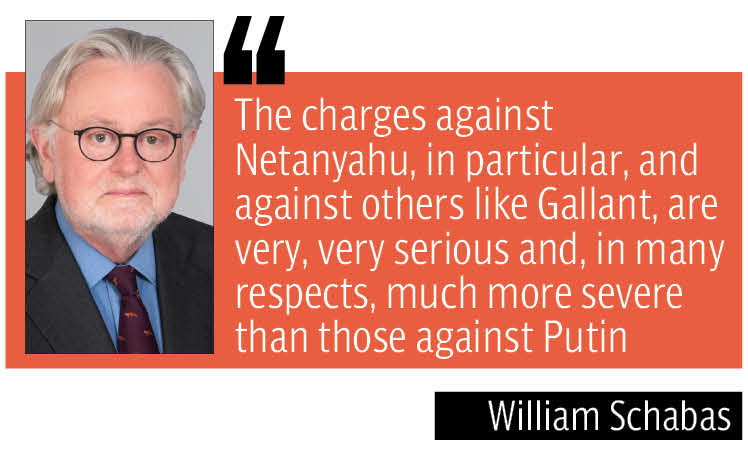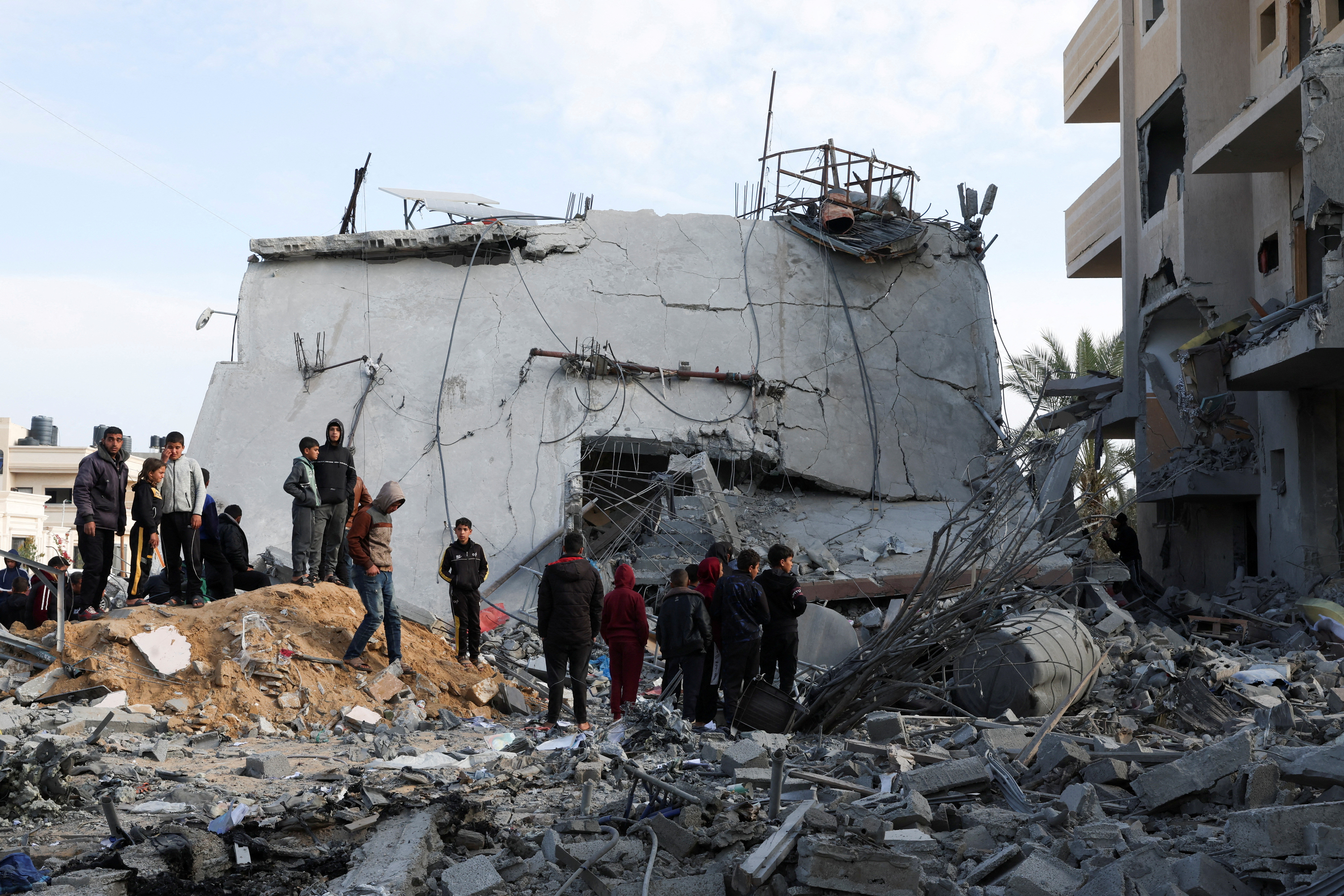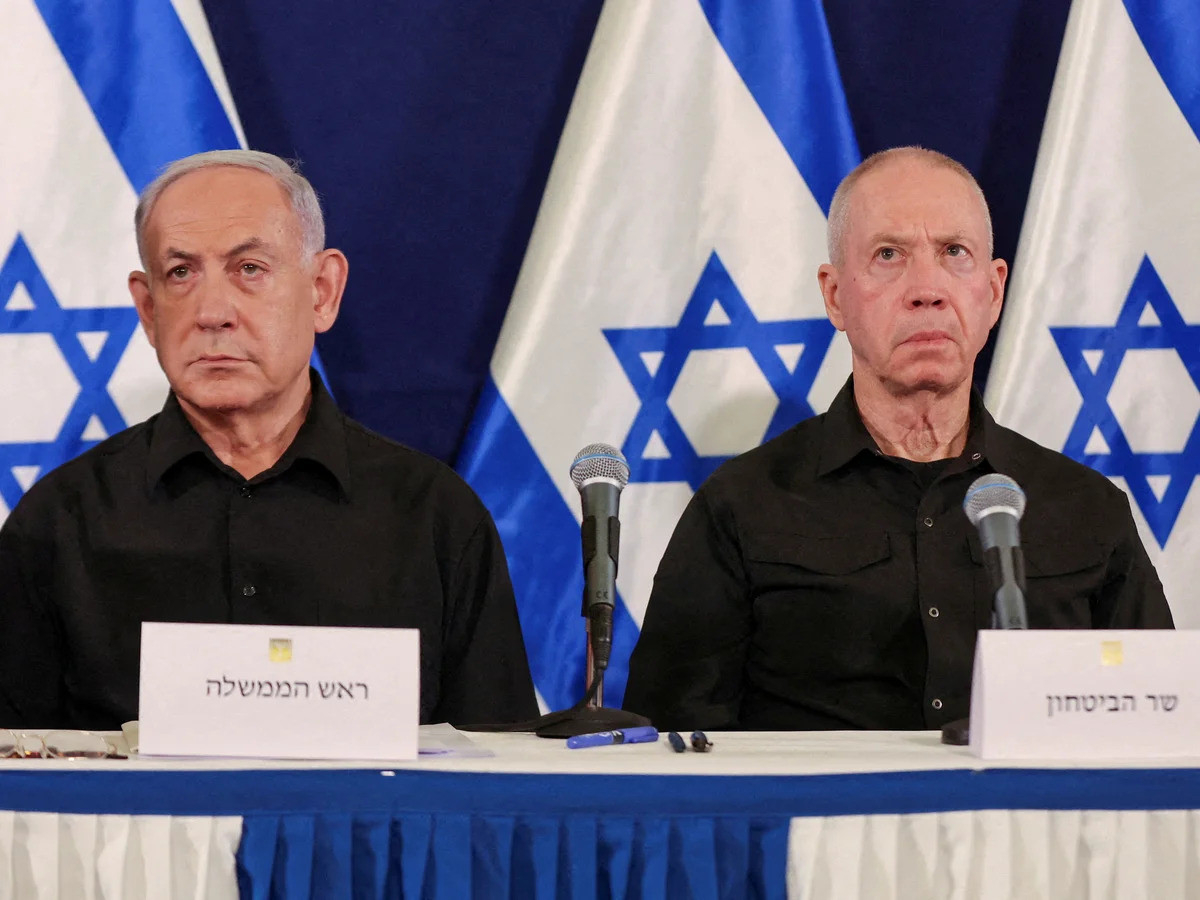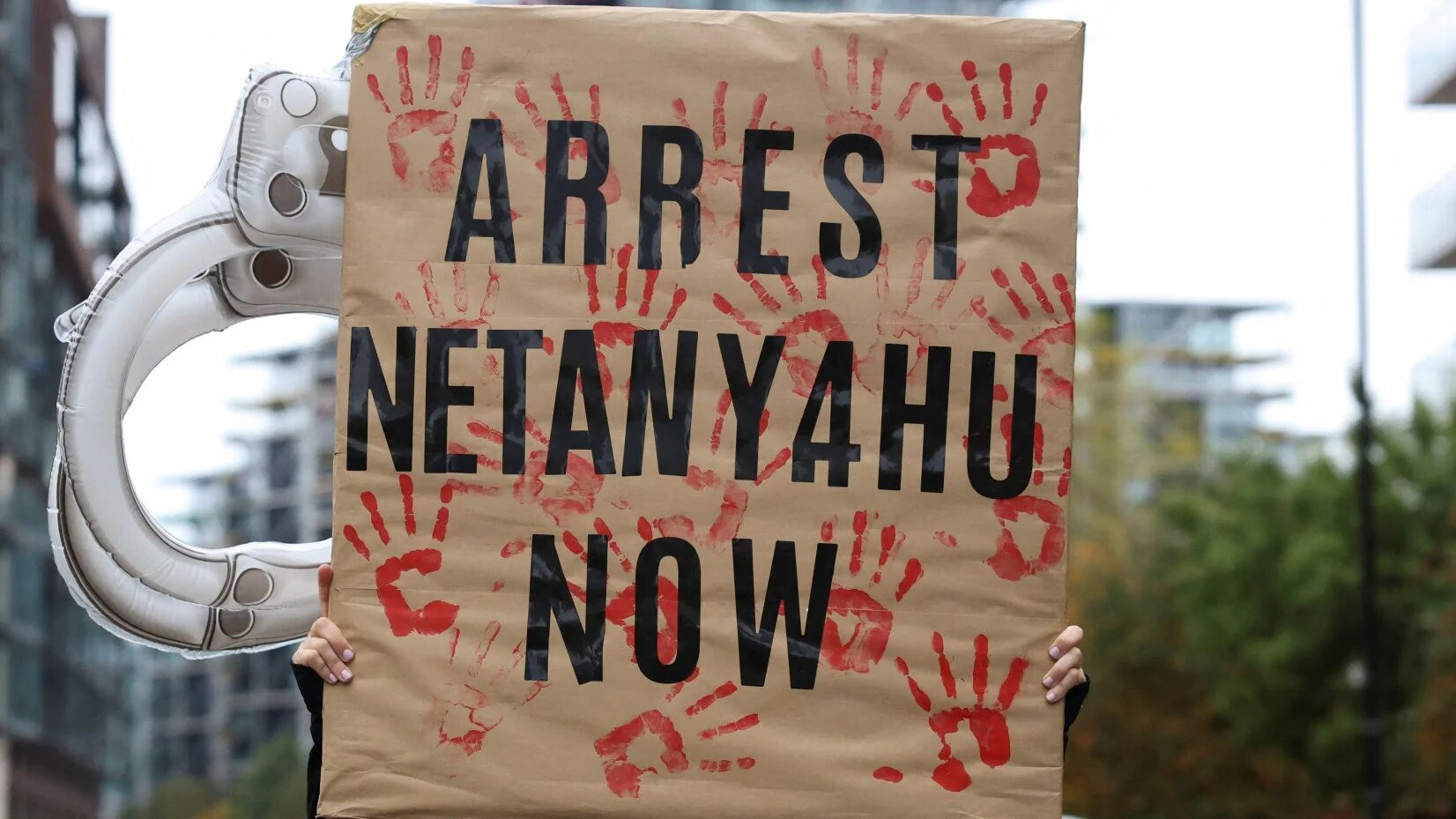For more than a year, Gaza has been the target of an unrelenting military campaign, widely described by experts as a genocide playing out in full view of the world. Amnesty International, a prominent human rights group, has now joined the growing chorus of critics, formally alleging that Israel has committed unlawful acts during its offensive, causing unprecedented devastation and loss for Palestinians in the besieged enclave.
The London-based rights group’s chargesheet, detailed in a sweeping 296-page report, lands as another mounting legal challenge unfolds at the International Criminal Court (ICC). In a striking development last month, the court issued arrest warrants for Israeli Prime Minister Benjamin Netanyahu, his former defense minister, Yoav Gallant, and Hamas military commander Diab Ibrahim al-Masri, also known as Deif, accusing them of potential responsibility for war crimes and crimes against humanity. The charges, swiftly rejected by Israeli officials as unfounded, have reignited intense global debates about accountability and the West’s willingness to uphold the principles of international law.
Based in The Hague and established in 2002 to prosecute the world’s most serious crimes, the ICC has long faced a significant limitation – it lacks the power to enforce its own warrants. Instead, it depends on its 124 member states, including all 27 EU nations, to apprehend suspects—a reliance that has highlighted the challenges of delivering justice on the global stage. While the West largely aligns on the need to arrest Russian President Vladimir Putin under a comparable warrant, several governments have begun to waver in their initial support for the ICC’s efforts to pursue charges against Netanyahu.

France, for instance, has argued that the charges against Netanyahu lack validity because Israel is not a member of the court. A similar tone of hesitation has emerged from Germany and Italy, aligning Europe’s three most populous nations in a noncommittal stance. Hungary, by contrast, stands alone in the European Union, openly declaring its refusal to comply with the court’s orders—a departure from the more cautious ambiguity of its counterparts.
Although several European governments, including Norway, Ireland, Spain, and to some extent Belgium, have voiced support for the ICC’s principles, the bloc’s most influential powers have stopped short of pledging to enforce its warrants. Across the Atlantic, the United States has taken a more overtly oppositional stance. Over the past year alone, it has not only vetoed attempts at the United Nations calling for a ceasefire in Gaza but also “fundamentally rejected” the court’s decision, with some lawmakers even proposing sanctions against the tribunal. This hesitance, legal and human rights experts contend, risks promoting a culture of impunity.
Last month, Dutch Prime Minister Dick Schoof muddied the waters further by suggesting that Netanyahu—the first Western-allied leader to face accusations of war crimes and crimes against humanity by the court—could visit the Netherlands without being arrested, despite the charges. His remarks appeared to temper the unequivocal stance of his foreign minister, Caspar Veldkamp, who earlier assured parliament that the Netherlands fully complies with the court’s warrant. The mixed messaging, experts argue, not only underscores a broader reluctance among Western nations to uphold the reach and credibility of international law but also exposes a double standard – one for the West’s traditional allies and another for its adversaries.
This inconsistency persists even as the conflict in Gaza displays the hallmarks of genocide—a calculated effort to obliterate a national, ethnic, religious, or racial group, as defined under international law. With more than 45,000 dead, nearly two million displaced, and entire cities reduced to rubble, there is little room to argue it is anything but that.
To unpack the implications of the International Criminal Court’s arrest warrant and the challenges posed by its lack of enforcement, The Express Tribune conducted a no-holds-barred interview with William Schabas, a leading legal scholar and author of the seminal book Genocide in International Law: The Crime of Crimes. Here is what Schabas, a professor of international law at Middlesex University in the UK, offered as his unvarnished perspective on the matter:
 ET: The International Criminal Court has issued arrest warrants for the Israeli Prime Minister, a former defence minister, and Hamas' current military leader. What are your thoughts on the evidence underpinning these warrants?
ET: The International Criminal Court has issued arrest warrants for the Israeli Prime Minister, a former defence minister, and Hamas' current military leader. What are your thoughts on the evidence underpinning these warrants?
WS: Historically, the International Criminal Court made arrest warrant applications public, with both the prosecutor's application and the judges' rulings typically accessible. However, that practice has changed without an explanation from the court.
This makes it difficult to fully assess all the evidence. What is available to the public is based on the charges levied. The charges against Israeli leaders include starvation and attacks on civilian objects, both of which have substantial supporting evidence in the public domain, such as reports from NGOs and media outlets like Al Jazeera. Clearly, there is ample evidence to support these claims.
As for the evidence against the Hamas leader, it concerns actions like the taking of hostages—an issue that is well-documented and not particularly controversial in terms of evidence. To issue an arrest warrant, the court must establish reasonable grounds to believe the crimes occurred. This is a relatively low evidentiary threshold, but it is the necessary starting point for prosecution. I am confident that the prosecutor has more than enough evidence to meet this requirement.
ET: According to Article 27 of the Rome Statute, all individuals are considered equal before the court. However, since Israel is not a party to the Statute, could this provide any basis for exclusion or an excuse to avoid prosecution or trial?
WS: The jurisdiction of the court, in principle, applies to crimes committed on the territory of a state that is a member of the court. It's not controversial that states have the authority to prosecute crimes committed on their territory—that's a fundamental aspect of sovereignty. What happens with the International Criminal Court is that it shares the sovereignty states have over their own territory. So, if Israel has committed crimes on Palestinian territory, then, in principle, Palestine has the authority to prosecute those crimes.
I don't see any objection or problem in that regard. Article 27 specifically addresses the immunity of heads of state, as heads of state and government typically enjoy immunity under international law from other tribunals, except their own. Article 27 removes that immunity within the context of the court. The question then arises whether Article 27 applies to a state that is not a member of the court. Member states have agreed that their heads of state cannot invoke immunity before the court, but this does not automatically extend to non-member states like Israel.
However, the court has made a series of decisions, including one by the appeals chamber—the court's highest authority—that states the prohibition on immunity for heads of state also applies to those from non-member states. This precedent was first applied to President Omar al-Bashir of Sudan, then to President Vladimir Putin of Russia, and now to Prime Minister Benjamin Netanyahu. Most recently, the prosecutor submitted an application regarding General Min Aung Hlaing of Myanmar. This principle now clearly extends to heads of state or government from states that have not joined the Rome Statute.

ET: Is Netanyahu immune from ICC arrest warrant, as France is claiming?
WS: France has raised a question about this and invoked Article 98 of the Statute, which addresses situations where a state is asked to proceed with the arrest of someone who could benefit from immunity. If you'd asked me this six years ago, I would have said that France had a strong argument.
However, the judges have ruled differently more than once, including very recently, in late October. There was a decision addressing the same argument raised by Mongolia, which declined to arrest Putin when he visited at the end of August. France is entitled to have its own opinion on this issue, but as a member of the court, it must also respect the conclusions reached by the judges.
ET: What does the arrest warrant itself mean for Israel and Netanyahu personally?
WS: The arrest warrant cannot be enforced without Israel's cooperation, unless Netanyahu and Yoav Gallant travel to countries willing to arrest them, which seems unlikely. You asked about France, but I don't think they would even go there. France is not a dictatorship; it's a democracy with an independent justice system.
While a bureaucrat in the French Foreign Ministry may say they won’t arrest Netanyahu, it is ultimately a judge who would make that decision. Netanyahu, I believe, would not feel confident that he would be protected if he were to go there.
It will be a real challenge for the court to arrest these two men. There's also a political impact, as no country wants its head of government labelled a wanted war criminal. This has already isolated Putin and will further isolate Netanyahu. It contributes to the growing perception that Israel has become a pariah state in the world.
ET: Do you think it will have any impact on the conflict in Gaza?
WS: This is difficult to say. To the extent that Israel is increasingly isolated, it may have some impact. The problem with Israel is that, even if isolated by the vast majority of countries in the world, it remains effectively a dependency of the most powerful military and economic power, the United States. Without a change in the United States' position, I'm rather pessimistic about what can happen in Israel and Palestine.
ET: What would happen if a majority of Western states, many of which are founding members of the ICC, find reasons not to comply with its arrest orders?
WS: What will happen is that it will ultimately cause great harm to the International Criminal Court, which these states themselves have worked hard to build. They have invested heavily, both financially and politically, in the court, which has a budget of over 200 million euros a year, most of which comes from European states.
These countries are very committed to it. However, the success of the ICC ultimately lies in its reputation and prestige as a truly impartial and independent judicial institution. A little over a year ago, before the latest Gaza conflict, it seemed that the court’s prosecutor was completely indifferent to the situation in Palestine, focusing instead on Ukraine, which appeared to be driven by the European states' agenda. For a time, he didn't seem to take any action on Palestine, but more recently, he has done so, which is a positive step and has helped enhance the court’s image as an independent and impartial institution.
However, if the court is seen as just a political tool, and is tainted by the perception that it is not impartial and independent, it would be devastating for the institution. If the rest of the world sees it this way, they will not support the court, and it will become ineffective and mediocre.
ET: If we reach a point where the majority of states find reasons not to comply, as they have suggested or indicated in their statements, will this signify the end of the International Court's reputation or its ability to function as a system of international justice?
WS: We have a lot of international institutions that lack credibility, and I think the ICC will just join them. I don't believe it will mark the end of the institution itself.
It has a large staff, a significant budget, and considerable infrastructure, so I don't see it simply shutting down or ceasing to exist. However, we won't see new countries joining it. Some countries may leave, and it certainly won't live up to the promise that inspired its creation and the widespread support it initially received from many parts of the world, not just Europe.
One of the surprising aspects of the International Criminal Court at its inception was the strong support from African states, which became its largest bloc. They joined because they respected and trusted it, appreciating an organization that, by design, was somewhat independent of the dominance of major powers, particularly the European ones.
But if that trust erodes, these states will lose interest in the ICC. Some might withdraw, and it certainly won't expand. The biggest gap in the ICC's membership today is in Asia. While some Asian states are members, the continent overall has the weakest level of support for the court. That won’t improve as long as countries in Asia perceive the ICC as a tool of Western European states that fails to act independently and impartially.
ET: How do these warrants compare to those issued for Omar al-Bashir and Vladimir Putin? What similarities or differences stand out to you?
WS: I don't think they're very different. Bashir was actually charged with genocide, although subsequent charges brought by the court against leaders close to Bashir in Sudan didn't include the genocide charge. I'm not sure whether they will persist with it. The charges against Netanyahu, in particular, and against others like Gallant, are very, very serious and, in many respects, much more severe than those against Putin.
Putin is charged with abducting children, but, as I understand, there's no allegation—again, we haven't seen the arrest warrant—that the children were subjected to physical or sexual abuse. None of them have been killed. By contrast, Netanyahu has left a bloody trail behind him.
So, I believe the nature of the charges against Netanyahu is much more dire and serious than what Putin has been accused of.
ET: What will it take for these cases ever to go to trial?
WS: The International Criminal Court doesn't prosecute people in absentia, so they have to be brought into custody. If they’re not, there’s very little that can happen. There is, however, a thesis by the prosecutor that a kind of preliminary hearing could take place in absentia.
This has never been done before, but the prosecutor is planning to attempt it with Joseph Kony, the leader of the Lord’s Resistance Army in northern Uganda. It was initially scheduled to start in October of this year but has been postponed for several months. I’m not sure if it will actually take place.
The prosecutor’s ambition might be to conduct such a hearing to stigmatize the accused, raise the standard of proof to something higher—such as substantial grounds to believe the crime was committed, rather than reasonable grounds to believe. This would be a relatively short process, and since it’s done in absentia, there would be no real defense. It’s not as though the defense would call witnesses or present a full case. The prosecutor might pursue this approach, but beyond that, not much else can happen.
ET: The West showed unanimous support for Russian President Vladimir Putin's arrest warrant, despite over 11,000 deaths in Ukraine, far fewer than those in Gaza. Yet, there is significant division, as seen in different capitals, over Netanyahu's case. What are your thoughts on this selective approach?
WS: Well, I don't like the selective approach. I don't like the double standards in international justice. I think it’s very harmful to both international justice and the institution itself. The court has distorted its priorities, placing more emphasis on Ukraine, which, in an objective sense, is not as dire as the situation in Palestine, where human suffering is far greater.
The people of Ukraine are not living under the same conditions as the people of Gaza. This is certain. Anyone who watches even a little bit of media will know that. Yet, the situation in Gaza has been treated as of secondary importance by the prosecutor of the court.
So, yes, the court is afflicted with double standards. Until very recently, all of its attention was focused exclusively on Central Africa. That’s still the case in terms of its trials. We have yet to see a trial of anyone from outside Africa. All of those actually prosecuted have been Africans, and most of them have been Muslims.
ET: What are the political implications of not complying with the ICC arrest warrant?
WS: The political implications are that the institution will suffer, not the political reputations of Western European states. Everyone knows they have double standards, that they're two-faced and hypocritical, and they have no reputation to lose in that regard. They're simply being loyal to Israel for political reasons.
That said, there are some cracks. Some Western European governments, like Norway, Spain, Ireland, and Belgium to some extent, have taken different positions. What I'd like to see in the long term is a situation similar to South Africa. In the 1960s, apartheid South Africa was largely backed by Western European states, many of which still had colonies or had recently been involved in colonialism. South Africa received substantial support, even though it was isolated among the countries of the Global South in the 1970s and '80s.
However, support for South Africa faded over time. The International Court of Justice issued a judgment in 1971 on their occupation of Namibia, but it took 19 more years for Namibia to gain independence from South African rule and apartheid.
I would like to think something similar could happen with Israel. The current situation could provoke new efforts to establish an independent, sovereign Palestinian state, which would transform the region's geography and politics. However, without U.S. commitment, there's only so much that can be done.
Honestly, the Western European countries may be called powers, but right now, they’re largely aligned with the United States and subordinate to it. Until they're ready to break with the U.S., I don't see much progress. Even if they do, we'll still need to confront the United States on this issue.
 ET: When we look at the ICC warrant, it seems entirely against Netanyahu. Are there any loopholes in the warrant or in the entire process that may help the Israeli leader’s case?
ET: When we look at the ICC warrant, it seems entirely against Netanyahu. Are there any loopholes in the warrant or in the entire process that may help the Israeli leader’s case?
WS: The loopholes – Well, the charge of directing attacks against the civilian population is typically difficult to establish because of the argument that these civilians lost their protection as civilian objects due to military activity. Israel's standard explanation for nearly every use of force in Gaza is that Palestinian noncombatants are being used as human shields, and that their targets are all military.
This would obviously be challenged. Many people don't believe this argument, but it's one they will invoke, and we'll have to see what the evidence shows. The prosecutor has limited the charges to two specific incidents. While we don’t have access to the details, it seems the prosecutor is confident they can prove that these incidents were not military-related.
Another charge relates to starvation, including the disruption of humanitarian assistance. If I were the defense lawyer, I’d be looking for ways to challenge these aspects. Ultimately, this will play out in court with the available evidence. One difficulty in war cases is the ‘fog of war’, which makes it hard to establish what’s happening with targeting in specific cases. This has been a challenge in every international crime prosecution.
What is more straightforward to establish are acts of persecution against a population in an occupied territory under your control. I think the prosecutor could have focused on the settlements in the West Bank, which have long been a point of vulnerability for Israel in the ICC. But, as of now, the charges relate to the conflict in Gaza. Prosecuting Israeli leaders may be successful, and charges related to the settlement of the West Bank could also be necessary.
ET: As a legal expert with significant experience in International Law, do you think there are any loopholes or weaknesses in the prosecution that you could identify based on your knowledge of the case?
WS: Well, again, we haven’t seen the evidence they have. We know that the prosecutor emphasized assembling a panel of experts when applying for the warrants. These experts included highly distinguished international lawyers, most of them British, and one American. I have great respect for those individuals, and I believe there’s likely a strong case there, but we haven’t heard the defence. This is always the challenge. On paper, the prosecution seems to have a very strong case. From what I’ve seen, the evidence against Israel, in a broad sense, appears strong and compelling. However, as with any trial, we need to hear the defence.
ET: Following the ICC warrants, the Israeli president labelled them as anti-Semitic, and Prime Minister Netanyahu has made similar claims. It appears that Jewish identity is being weaponized as a defense against criticism of their actions. Do you believe this is anti-Semitic?
WS: Well, I think you're absolutely right about Jewish identity being weaponized. I come from a Jewish background myself, and I deeply resent how it is being exploited in this context. Netanyahu has claimed that he is being persecuted, comparing his situation to that of Alfred Dreyfus, a French artillery officer of Jewish descent who was convicted of treason in 1894 and sentenced to life in prison after a controversial trial at the turn of the 20th century.
However, there is a significant difference. Dreyfus was innocent – he was convicted based on forged documents and false testimony. That is not the case with Netanyahu. This idea of framing everything as a result of anti-Semitism has become something of a mantra in Israel. While that is what they claim, I don’t believe it—it’s not anti-Semitism.
ET: Personal immunity will end for Netanyahu if he leaves office. Could this be a reason for him to extend the conflict?
WS: Personal immunity is certainly relevant to Netanyahu due to Israel’s laws. As you know, he faces legal issues within Israel, and as head of government, he has some degree of protection while in office. However, the threat of prosecution by the International Criminal Court doesn’t fundamentally change, as long as he remains in Israel, even if he is no longer in office.
Many have suggested—and I’m not the first to say this—that a significant part of the war is driven by Netanyahu’s personal ambitions to stay out of jail and remain in power. That may be true to some extent, but it’s important to note that not all the wrongs committed by Israel in the past year can be attributed solely to Netanyahu. He is part of a broader state system with significant support, including from factions that are even more extreme and violent than he is.
ET: Let's assume Netanyahu is out of office, and the International Court's warrant remains active. Do you expect Israel to initiate any proceedings against him or attempt to hand him over for trial? Do you think Israel would take any action in this regard?
WS: Within Israel, unrelated to the conflict, no, I don’t think so. There would need to be a very dramatic shift in the political landscape for that to happen.
